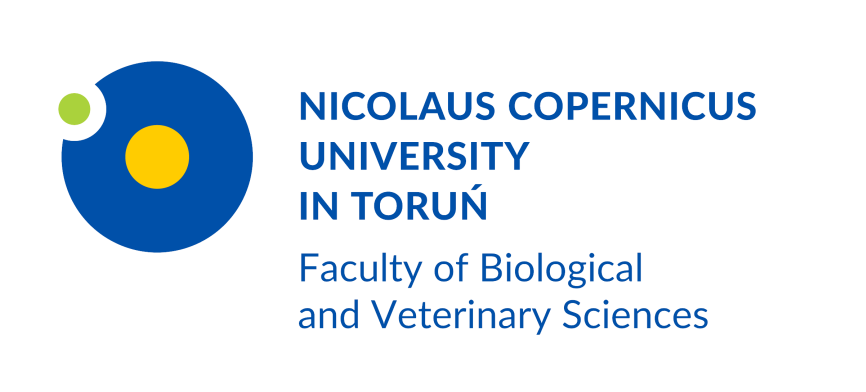Laboratory for Genetic Engineering
Head: dr hab. Justyna Wiśniewska
The laboratory was established in 2016. Employees of the Faculty of Biology and Environmental Protection and students can conduct closed research using genetically modified microorganisms (GMM) or genetically modified organisms (GMOs). Such activity requires obtaining appropriate permits of the Minister of the Environment. Consents for the contained use of genetically modified GMMs classified in the first category (BSL 1) (decision No. 167/2016 of 12/09/2016) and for the contained use of genetically modified organisms of GMOs classified in category I (BSL 1) (decision No. 168/2016 of 19/09/2016) obtained indefinitely.
Activity profile for GMMs:
scientific:
- BETA MIKRO – sugar beet microbiota (Beta vulgaris) and its interaction with the plant (dr M. Gołębiewski). Research – grant OPUS 11
- Analysis of protein signal elements involving calcium ions and cyclic nucleotides in plant growth and development processes in response to biotic and abiotic stress (dr hab. K. Jaworski)
- Development of the preparation method and biochemical and structural characterization of recombinant nucleotide metabolizing enzymes: Solanum tuberosum (StApy4, StApy5 and StApy6) and Arabidopsis thaliana (AtApy1 and AtApy2), adenylate kinase (AK) from Aquifex aeolicus and Bacillus stearothermophilus and human adenylate kinases (dr D. Porowińska, dr M. Wujak)
- Development of the preparation method and biochemical and structural characterization of recombinant 1-O-IAGlc acyltransferase: myo-inositol from Oryza sativa and Pisum sativum amidosynthetase IAA (dr D. Porowińska, dr M. Wujak)
- Development of the preparation method and biochemical and structural characteristics of group IIA recombinant human phospholipase A2 (dr D. Porowińska, dr M. Wujak)
- Identification and analysis of genes involved in the maintenance of heavy metal ion homeostasis and strict response in plants and fungi (dr hab. G. Dąbrowska, dr A. Mierek-Adamska, dr J. Boniecka)
didactic:
- Preparation of recombinant proteins in the bacterial system – biotechnology students will receive CDPK kinase from Hippeastrum hybridum using Escherichia coli (dr hab. K. Jaworski)
- Expression and purification of recombinant GFP protein from Aequorea victoria by biotechnology students on laboratory exercises (dr D. Porowińska, dr M. Wujak)
- Transformation of bacterial and yeast cells with vectors carrying plant genes by biotechnology students (dr hab. G. Dąbrowska, dr A. Mierek-Adamska, dr J. Boniecka)
Activity profile on GMOs:
scientific:
- Understanding the functions of plant Cajal bodies in post-transcriptional regulation of gene expression in plant cells under physiological conditions and abiotic stress (dr hab. J. Niedojadło, dr K. Niedojadło). Research – grant OPUS 11
- Localization and role of PIN, AUX / LAX, ABCB1,4,19 proteins in callus induction and early intermediate stages of somatic embryogenesis in Arabidopsis thaliana (dr hab. J. Wiśniewska)
didactic:
- Training for people working with the use of genetically modified microorganisms (GMM) and genetically modified organisms (GMOs). Coordinator of the subject: dr hab. Justyna Wiśniewska/ dr hab. G. Dąbrowska. Lectures and laboratory classes will enable students to familiarize themselves with the organization of a laboratory with biosafety levels (BSL 1, 2, 3,4) in which it is possible to work with GMM and/or GMOs. They will gain knowledge about the organizational requirements of each of these classes of laboratories.The aspects concerning the storage of samples and the necessary procedures for the utilization of genetically modified material will also be discussed. Students will be familiarized with health and safety regulations, which are necessary for such a laboratory to obtain a positive opinion of the National Labor Inspectorate (PIP) and the State Sanitary and Epidemiological Station in Poland.
- Popular science lectures related to GMM and GMO
- Transgenic plants and mutants of A. thaliana will also be used in various exercises by biotechnology students, which are taught at the Faculty of Biology and Environmental Protection of the Nicolaus Copernicus University (dr hab. J. Wisniewska, dr. hab. J. Niedojadło, dr. K. Niedojadło)

 ul. Lwowska 1, 87-100 Toruń
ul. Lwowska 1, 87-100 Toruń